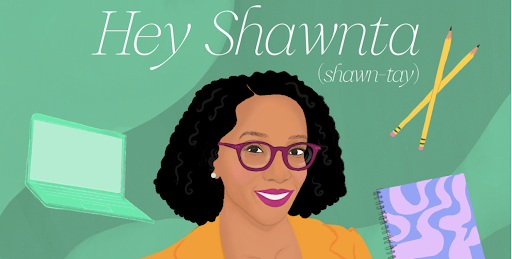
Hey Shawnta!
What should parents do with the information from Emily Hanford’s podcast "Sold a Story"?
Journalist Emily Hanford began writing about literacy a few years ago. Many times, education journalists write about education legislation, school board meetings, criminal activity in schools, innovative happenings, or awards staff and students have received. There are not enough education journalists writing about education practices. There needs to be more.
Hanford’s podcast, "Sold a Story: How Teaching Kids How to Read Went So Wrong," extends the content shared in her articles about the fact that across the United States, teachers are not teaching students how to read based on the science of reading. The "science of reading" is a phrase that means teachers should use reading strategies that research has shown actually help students learn how to read.
As a middle school English teacher for most of my career, I had many students who could not read well; they had limited literacy skills. Later, I became an elementary literacy coach and saw practices that did not align with my beliefs about how students should be taught how to read or that didn’t make sense. For example, I heard so many teachers say, “look at the picture,” when students got stuck. If the student looked at the picture and then said the correct word, the student guessed; the student did not read.
As Hanford shared in her articles and on the podcast, educators who support these strategies believe that comprehension is more important than being able to read words accurately. There is no educator or parent who doesn’t agree that reading comprehension is key. However, some educators do not believe students must read every word accurately.
Being a parent and a literacy-focused educator, I had to listen to this podcast. Numerous parents have asked me what they should do with the information.
First, parents must ask if their children’s school uses balanced literacy, guided reading, Fountas & Pinnell’s benchmark assessment reading level test, level literacy intervention (LLI), and Lucy Calkins units of reading and writing. If so, ask them if they are planning to continue using it. If not, ask them what the school uses instead and if there is a systematic phonics component.
Next, ask about the curriculum adoption process. Specifically, ask what measures are included that ensure the literacy strategies used are rooted in research. This research should be independent, not simply research the curriculum company produced stating that it is great. Ask if members of the committee actually read the research studies or if they are taking the curriculum company at their word. Finally, the committee should have parent participants.
Ask what ongoing professional development teachers are receiving about literacy instruction. Ask who is facilitating the professional development, what their credentials are, and how often this training occurs. Then ask how school administrators or teacher coaches are ensuring the professional development is being implemented and implemented properly.
Last, if your school district refuses to use a sound curriculum, it is time to organize and push back. Your children’s lives and future livelihoods are at stake. Frederick Douglass once said, “Once you learn to read, you will be forever free.” Don’t allow your children to be held back in life and shackled to a less desirable future because they didn’t become proficient readers.
Also, if you would like to hear more reflections about the podcast, please listen to me debriefing Sold a Story with my husband on Brazen Education.
Shawnta (Shawn-tay) S. Barnes, also known as Educator Barnes, is a married mother of identical twin boys. She navigates education from not only the educator’s perspective but also the parent’s perspective. She has been an educator for nearly two decades. Shawnta works with K-12 schools, universities, & education adjacent organizations through her education consulting business Blazing Brilliance. She is an adjunct college professor, supervises student teachers, Indy Kids Winning Editor-in-Chief, Brave Brothers Books Co-founder, & CEO, and Brazen Education Podcast host. She holds five education licenses: English/language arts 5-12, English to speakers of other languages P-12, library/media P-12, reading P-12, and school administration P-12, and she has held a job in every licensed area. Previously, she has served as a school administrator, English teacher, English learners teacher, literacy coach, and librarian. She won the 2019 Indiana Black Expo Excellence in Education Journalism Award. In 2023, she completed her doctorate in Literacy, Culture, and Language Education with a minor in Learning Sciences. She is an urban gardener in her spare time and writes about her harvest-to-table journey at gardenershicole.com. To learn more about Shawnta, visit educatorbarnes.com.
The fight for educational equity has never been just about schools. The real North Star for this work is providing opportunities for each child to thrive into adulthood. This means that our advocacy...
Your donation will support the work we do at brightbeam to shine a light on the voices who challenge decision makers to provide the learning opportunities all children need to thrive.
Ed Post is the flagship website platform of brightbeam, a 501(c3) network of education activists and influencers demanding a better education and a brighter future for every child.
© 2020–2024 brightbeam. All rights reserved.